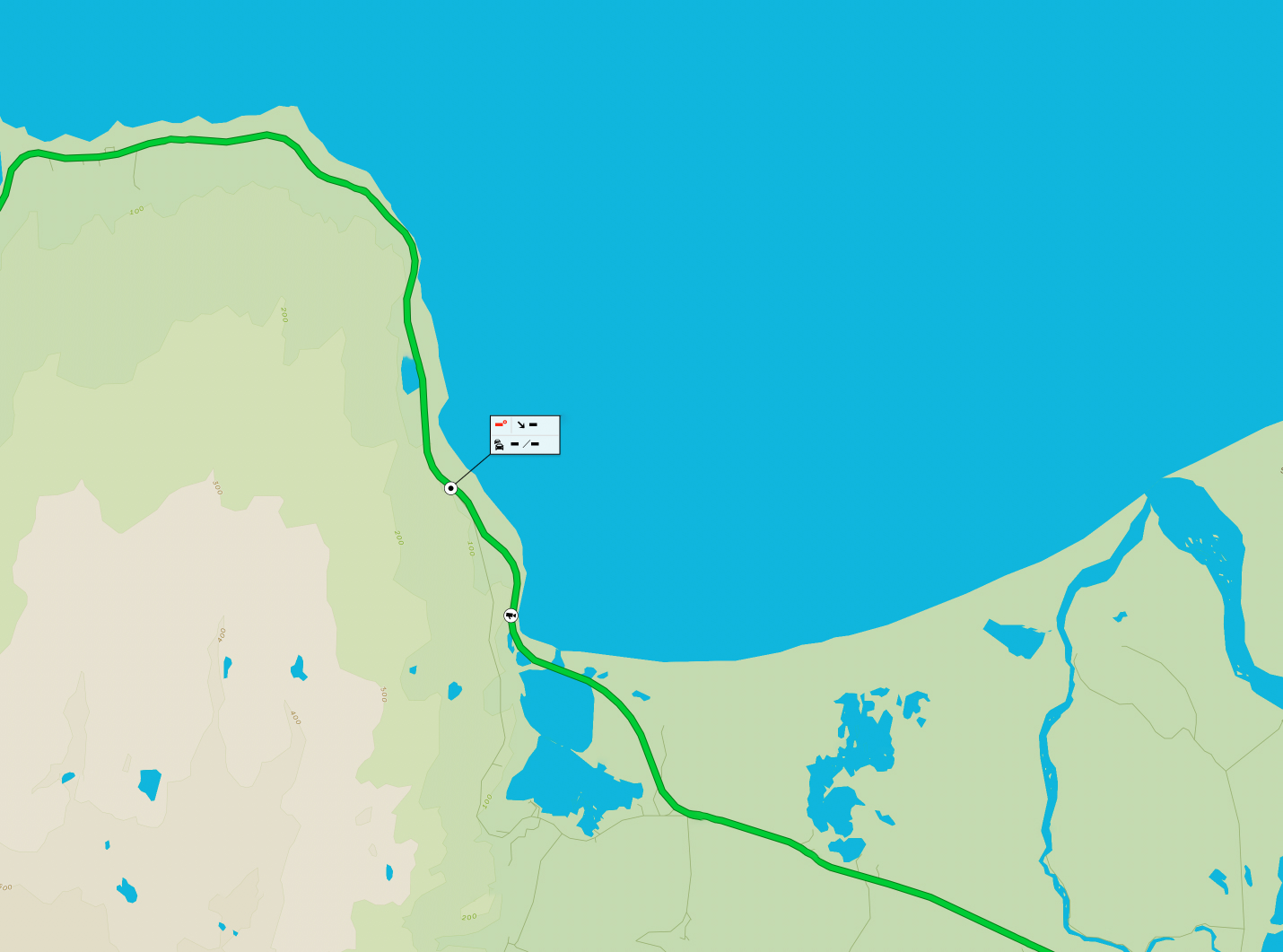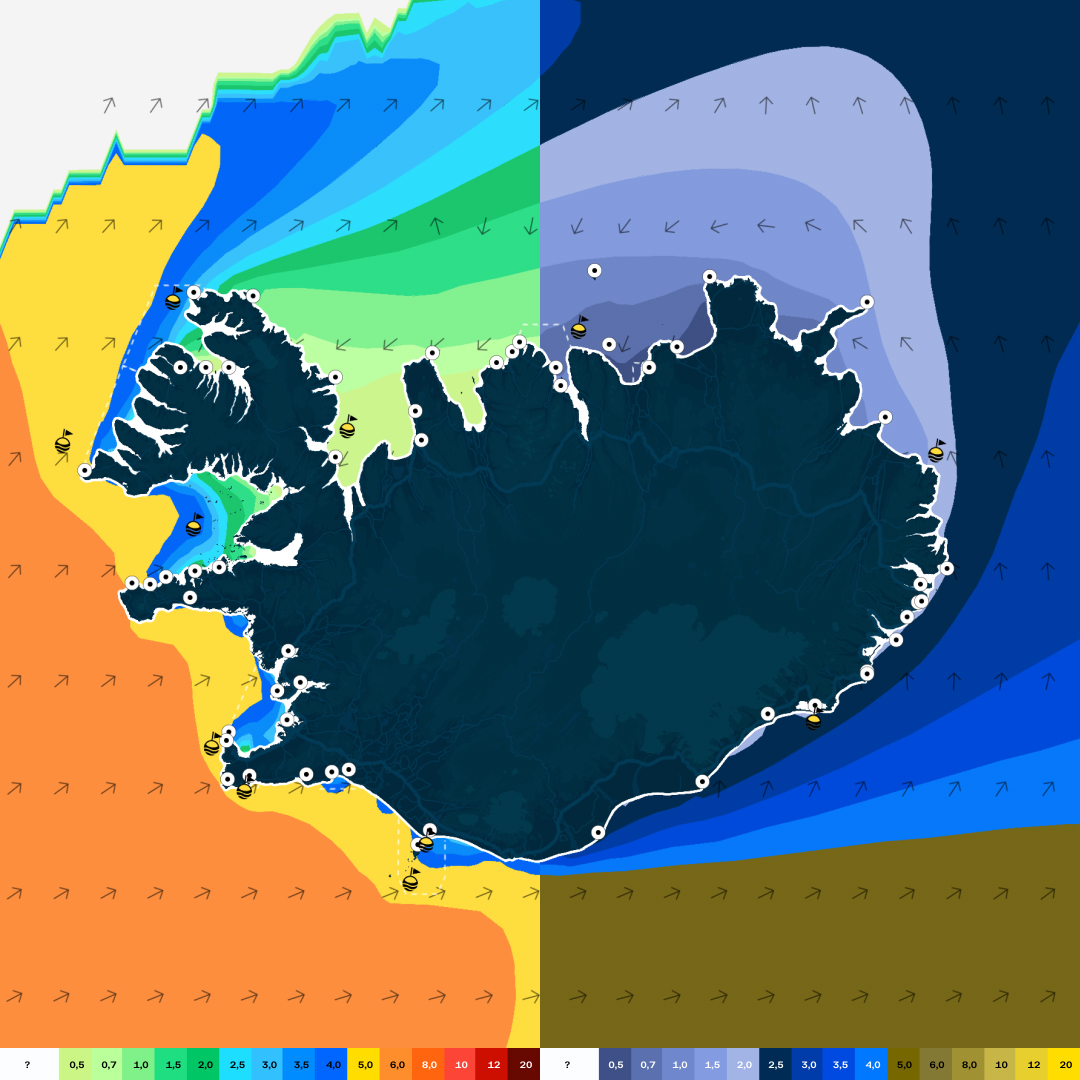The Maritime Watch Station
The IRCA is responsible for the operation of the Maritime Watch Station, as well as being responsible for both financial and professional oversight of the Watch Station and its projects. The Watch Station operates various safety and monitoring services for vessels and sea transport.

The IRCA has financial and professional control over the operation of the watch station, and manages communication with the authorities regarding its projects. The Icelandic Transport Authority manages international collaborative efforts, such as with the International Maritime Organization (IMO,) and the European Maritime Safety Agency (EMSA.) The Icelandic Coast Guard, ICE-SAR, and the Emergency hotline collectively operate the watch station according to a collaborative service agreement established thereto. The Icelandic Coast Guard has primary leadership within the watch station and therefore manages its daily operations.
The objective of this collaborative service agreement is to ensure the safety of seafarers as much as possible, and that all relevant parties — highly experienced and knowledgeable regarding the application of surveillance for search and rescue — join forces in operating the watch station for the benefit of all seafarers.
The watch station's projects
The role of the watch station is defined in the legislation establishing it, and in Directive 2002/59/EC. It should be stated that the main role of the watch stations is five-fold:
- to monitor all maritime traffic within Icelandic jurisdiction, identifying and registering all vessels
- to communicate with maritime vessels within Icelandic jurisdiction, when the need arises
- to communicate information to maritime vessels regarding environmental issues and maritime-related updates
- to respond to unforeseen events, and to take action if circumstances so require
- maritime rescue coordination (MRCC.)

The Hrísey ferry: Sævar, summer of 2023. Photo credits: Vilhelm Gunnarsson.
Vessels in Icelandic waters
The Maritime Watch Station constantly monitors all fishing vessels within Icelandic jurisdiction through an Automatic Identification System (AIS) and other related systems. The AIS-system allows for tracking the movement of all freighters along the Icelandic coast.
Following EU resolutions, an electronic notification system for marine traffic between member states, as well as Norway and Iceland, has been implemented. This system is called Safe SeaNet (SNN.) Safe SeaNet collects and communicates information regarding ship movement, the transportation of dangerous materials, navigation history, mishap registration, and more.
Telecommunications services
The presence of good telecommunications within Icelandic jurisdiction is very important. Sufficient service through telecommunications — such as information regarding sailing and sailing routes, along with general safety services — must be provided. Furthermore, the watch station also serves as an intermediary between vessels and ship services pertaining to emergency ports.
Environmental information
One important aspect of the Maritime Watch Station’s operation is the monitoring and use of information systems regarding environmental factors such as weather, wave height, tidal currents, etc. Real-time measurements of these factors, along with the relevant forecasts will, over time, become powerful tools that watch stations managers can use to handle any problems which might surface regarding sailing and fishing, as well as pollution incidents that occur within the jurisdiction. Information systems on environmental factors must be developed further, and the IRCA has recently carried out work in this respect.
Right to intervention
Situations can arise regarding ship movement within Icelandic jurisdiction which necessitate intervention by the Maritime Watch Station. EU Directive 2002/59/EC, calls for a type of Maritime Assistance Service (MAS,) which can refer to everything from instructions for captains, to sending an expert group on board a ship in distress to evaluate its condition.
Furthermore, the Act on marine and coastal antipollution measures stipulates the right to intervention, which provides possibility for MAS to intervene if an accident leading to pollution is deemed imminent. The distinction between MAS and direct rescue services are still somewhat unclear. Detailed working procedures need to be set with regards to MAS, i.e. where the role of the watch station and the responsibility of the captain are clearly individually defined.
Provisions on emergency ports, as well as places of refuge, and the subsequent role of the watch station in this regard, also relate to this Act. This factor also necessitates the implementation of definitions and rules of procedure. The right to intervention is perhaps the most sensitive field of operation, with regards to where the responsibility lies. According to changes that were made to the Harbour Act, the Icelandic Transport Authority is the administrative entity which appoints places of refuge in Iceland.
Organisation of rescue issues
With the advent of the maritime watch stations, as well as the involvement of rescue party representatives, now is a better opportunity than previously seen to coordinate all rescue measures, and to better utilise the equipment readily available. A better foundation for rescue and sailing services is achieved by including rescuers in the watch stations.







